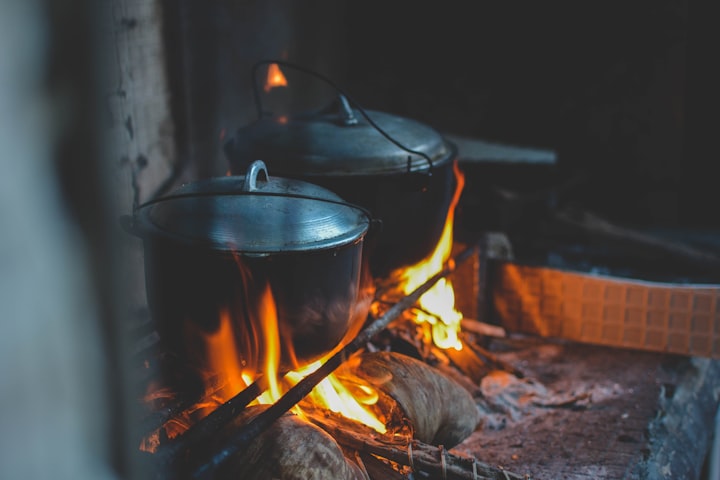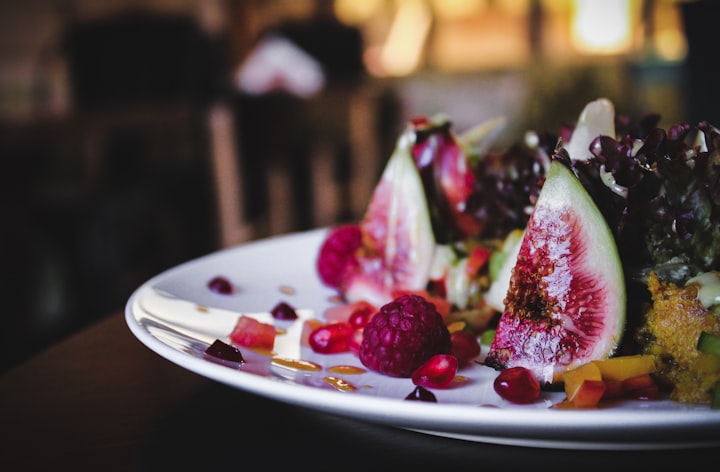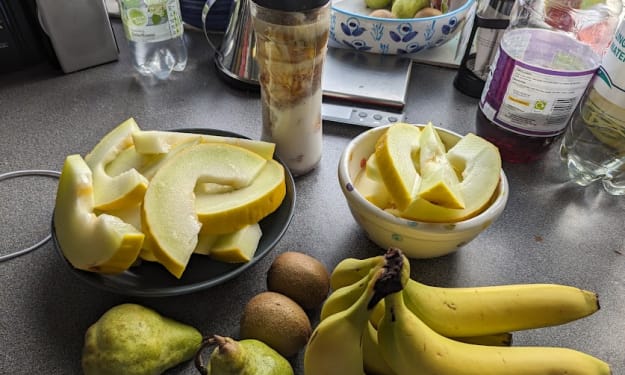
Cooking is so much more than just heating food; it has evolved into an art and is considered one of life's greatest pleasures and experiences.
There is something almost magical about the change in molecular structure caused by the thermal denaturation of ingredients that makes cooking an alchemy of flavors.
The art of food preparation is one of the most important parts of our culture. Eating together is a way to connect with others. There is almost no celebration that does not involve cooking in some form, from birthdays to weddings, from religious events to other traditional ceremonies.
Finally, food symbolizes love and caring between friends and family members because it shows that someone wants you around so much that they want to share their table with you.
1. Cooking in Ancient Times
Cooking was not always as simple as it is today. Preparing food in ancient times was a lot more complicated.
The first type of cooking was roasting meat over open fires around two million years ago. This was done by placing meat on a spit or skewer and rotating it over an open flame.
Afterward, about 30,000 years ago, our ancestors developed the first "earth ovens" in central Europe. This process helped optimize the protein intake and improve the flavor as the food was allowed to roast slowly.
The next step in evolution was boiling food in pots made from clay around 20,000 years ago.
Cooking softened the pieces of meat, making them more edible. Then we proceeded to roast the food on heated stones or grills placed over open fires.
At that time, the foods people ate depended on the culture they lived in and what the ecosystem yielded.
Among the Babylonians, Sumerians, Akkadians, and Assyrians, cooks were oracles who could divine the future from the process of cooking food.
In ancient Egypt, cooks were respected and had high social status because they prepared meals for the pharaohs and their family members.
In Rome, women were responsible for cooking, while men were farmers or soldiers.

Cooking has changed drastically over the years. Our ancestors cooked in their homes and provided food for their families and guests. It was seen as something that had to be done to survive, not something to be enjoyed or appreciated beyond basic sustenance.
The Jentaculum was the first meal of the day. It consisted of bread (soaked in heated wine or else sprinkled with olive oil and flavored with garlic), cheese, eggs, and goat or sheep milk.
The Prandium was served around noon; this was a frugal meal and consisted of the strictly necessary to regain strength. It included leftovers from the previous day, cold meats, fruit, and cheese, and was accompanied by mulsum (wine mixed with water and honey)
The Cena was the day's main meal and usually began around four in the afternoon.
Ancient Roman civilization's most common foods included fish, shellfish, pork, wild boar, mutton, hare, rabbit, chicken, pheasant, goose, duck, pigeon, and peacock.
Beef was not usually on the menu of the Romans, but as the empire expanded, other meats such as ostrich, bear, and camel were part of the diet.
Water was mixed with wheat or spelt to make a porridge, which was then baked into bread, the most common staple food of the time.
However, the actual recipes and preparation methods seem alien to our modern tastes, as the food was prepared differently than it is today, with sweet and salty flavors and excessive use of spices and herbs.
2. Cooking in Medieval Times
The first thing to remember is that food in the Middle Ages was very different from what we're used to today. It was simple and plain - without many spices and flavor enhancers. Medieval food wasn't very healthy, but it wasn't tasty or nutritious either.
Medieval recipes were passed down for centuries by those who cooked for kings and queens all over Europe. They utilized flour and eggs to produce essential baked products, which aren't all that different from what we eat today.
Medieval Cookery and Cooking Technology
Medieval cookery is a matter of much debate. It is clear that the preparation and cooking of food was an essential part of daily life in the Middle Ages, but there are few records left by contemporary cooks themselves about their craft.
What we know about medieval cooking comes from written sources such as recipe collections, cookbooks, court records, archeological finds, and from visual representations such as manuscripts, woodcuts, and stained glass windows.
Cooks prepared meals for the household according to traditional recipes that were passed down from generation to generation. Different methods were used depending on social status.
The wealthy employed personal cooks, while the poor cooked for themselves, using simple devices such as hearths or ovens built into the stone walls in which they lived.
Middle Ages cookware: hearth cooking
The history of cooking in medieval times is an exciting topic to study. It was a time when food was not as plentiful as it is today. In medieval Europe, people used a lot of spices in their dishes because they couldn't access many other ingredients.
The most common cooking methods in the Middle Ages were boiling, frying, deep-frying, and grilling. It is important to note that these techniques are still used today in one form or another.
Roasting was a common method of preparing beef, lamb, or other large cuts of meat. Fried foods were usually prepared in a deep fryer with a fire burning in the center and the meat placed over it.

In medieval times, people would cook their meals by placing pots and pans directly on top of the burning wood or coal within the fireplace.
Hearth cooking was the most common form of cooking in the Middle Ages. It refers to food that was prepared over an open fire, most often in a fireplace or hearth.
This type of cooking was usually done by women, as men would instead go hunting or farming than stay home and take care of domestic duties, such as cooking dinner for the family daily.
In some homes, there were even grates on which pots and pans were held over the flame to facilitate access to the food that was cooked on top of them.
3. Cooking in Modern Times
Cooking is a skill that has been around for centuries. It is one of the most important skills in the kitchen, and it has evolved quite a bit from its primitive roots.
Changes in food manufacturing
The food manufacturing industry has undergone drastic changes since the second half of the 20th century. These changes have come about because of several factors, including:
- The increase in big food corporations
- The advent of frozen foods
- The rise of convenience stores
These changes have led to a greater reliance on fast food, which is often less healthy than home-cooked meals.
The invention of the microwave
The microwave oven was invented by Percy Spencer in 1945. It is a device that uses electromagnetic waves to heat food from within without the need for direct contact with heat sources.
The invention of this new way of cooking led to more efficient methods of heating food, as well as other technologies such as air conditioning and cell phones, which rely on microwaves for communication between towers and cell phones themselves.
Food manufacturers also began to use microwave technology to cook their products faster than ever before.
Changes in cuisine and eating habits
The rise of celebrity chefs: In recent decades, television shows like Master Chef have become enormously popular. These shows have had an enormous impact on the idolization of the figure of the chef, bringing him from the background of the restaurant to the limelight.
The rise of food bloggers: Today, many people look for new ways to prepare their favorite recipes from scratch. Bloggers post pictures and videos of their cooking adventures for others to follow along with as well.
The impact of social media on food trends: Thanks to social media platforms, we now have access to more information about what's trending than ever before.
Food trucks and fast food on the go: These days, there aren't just trucks selling burgers; there are trucks selling everything from ice cream cones at fairs outside malls in the summer to burgers and hot dogs year-round.

The growth of organic farming and vegetarianism
Vegetarianism is the practice of abstaining from consuming meat and may also include abstention from by-products of animal slaughter, such as leather. With the growth of organic farming, vegetarianism has become a popular lifestyle choice.
The history of vegetarianism begins in the 6th century B.C., when the Greek philosopher Pythagoras advocated abstaining from meat on ethical grounds because he considered animals to be sentient.
It is possible that Pythagoras' teachings influenced Jainism and Buddhism; both religions adopted his moral principles regarding animals and our duties toward them.
A survey conducted by Ipsos Mori in 2018 estimated that around 3% of the world's population follows a vegan diet, five percent are vegetarian, and another 14 percent are flexitarian.
Vegetarianism has since progressed beyond its role as an ethical practice and is now considered a healthy alternative to animal products worldwide.

4. The Future of Cooking
Cooking has been around for a long time. It has evolved to the point where it is now an art form, with many people considering it a form of creative expression.
In the future, we will see many changes in food sources. We will be able to use new foods such as insects and algae to create new dishes.
There is also much more experimentation with different cooking techniques and ingredients.
Still, it all boils down to one simple question:
What is food?
Food is a basic need, an expression of creativity, and a way to connect with others. Food is also our values in solid form.

I've already mentioned that food has been a means of expressing our creativity since the beginning of time. We know how the pioneers learned how to make cornbread, buffalo jerky, and other staples that would help them survive long journeys through untamed lands.
But as we have evolved over time, so have our methods of food production. We now have access to ingredients from around the world - like chocolate from Peru or coffee beans from Ethiopia - that were once only available locally.
And social media platforms like Instagram give us access (and inspiration) at any given moment across oceans and continents-which means today's chefs can create dishes no one else in history has ever seen.
Food innovation will help change the way people live. I can imagine a future where we will have access to healthy, synthetically produced foods that are not derived from animals or plants. This will be a major breakthrough in reducing our carbon footprint and preserving the planet's ecosystem services for future generations.
_____________
Thanks for reading this article. Please consider supporting our community of creators by becoming a Vocal+ Member. Feel free to come back at any time and pick up another thread from my Vocal book of content. Small tips, pledges, and big hearts are highly appreciated. Till next time, cheers. - Rui
About the Creator
Rui Alves
Hi, I'm Rui Alves, a teacher, army veteran & digital pathfinder. Author, alchemist of sound & Gen-AI artist.
Reader insights
Outstanding
Excellent work. Looking forward to reading more!
Top insights
Easy to read and follow
Well-structured & engaging content
Expert insights and opinions
Arguments were carefully researched and presented
Masterful proofreading
Zero grammar & spelling mistakes
On-point and relevant
Writing reflected the title & theme






Comments (4)
I like to cook, but I think most of us have forgotten where food comes from, and how much our cooking practices have evolved - it's easy to take it all for granted - thanks for the reminder! :)
Informative & interesting!!!
Very well written and detailed article. I really enjoyed this.
Interesting article, thank you for sharing